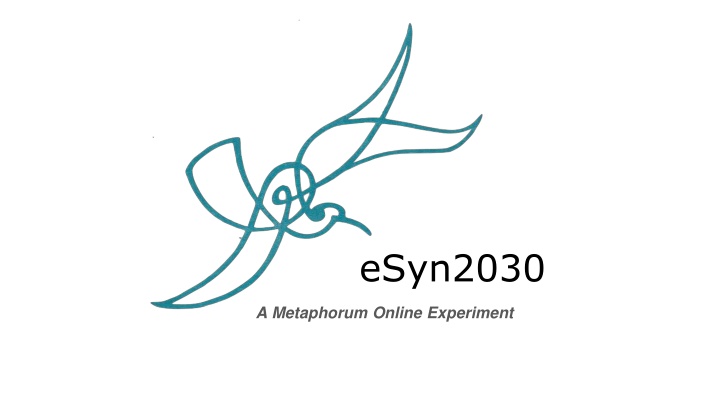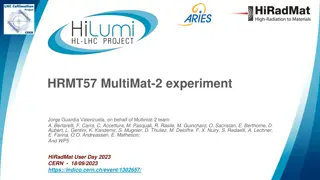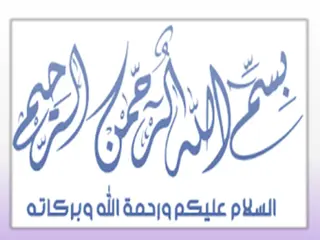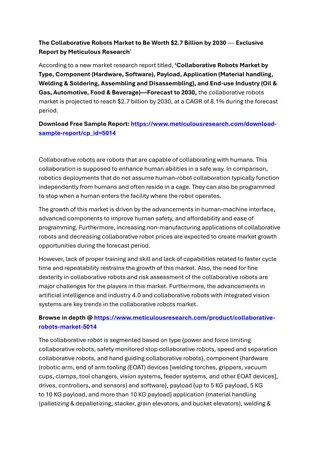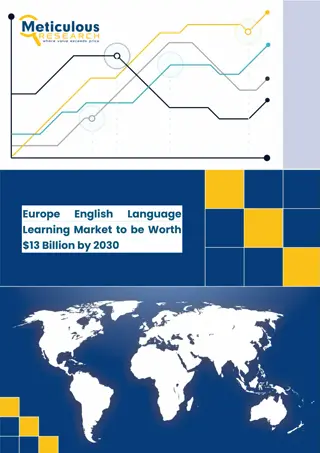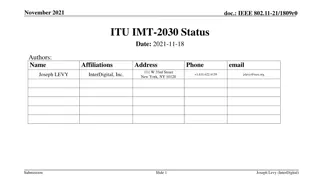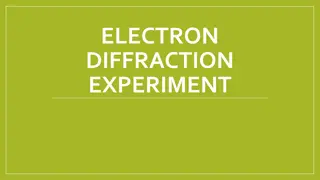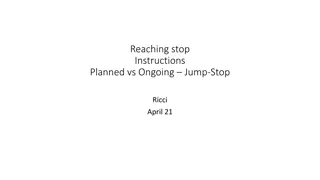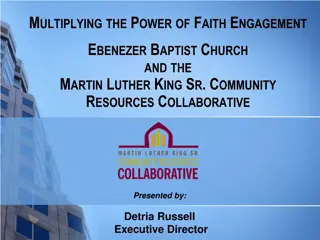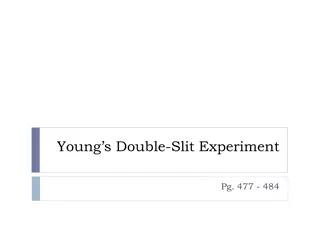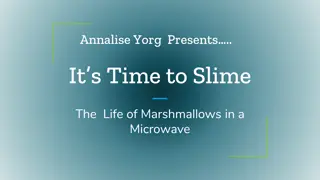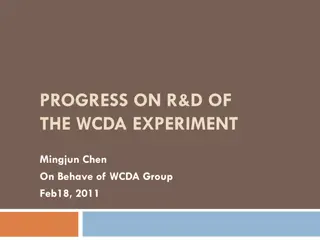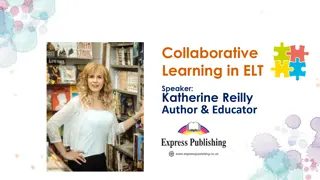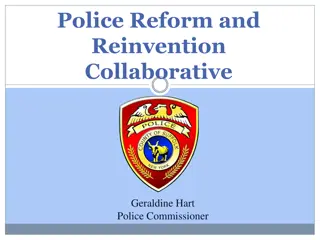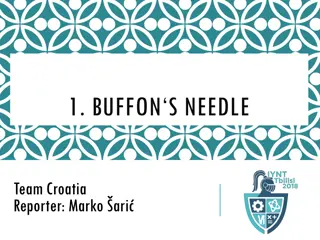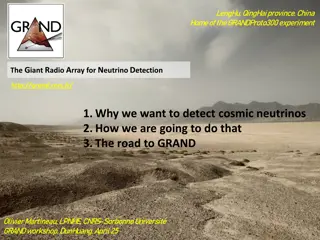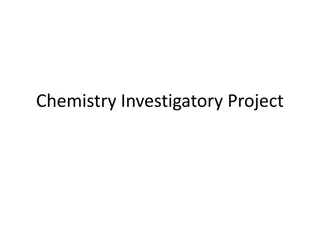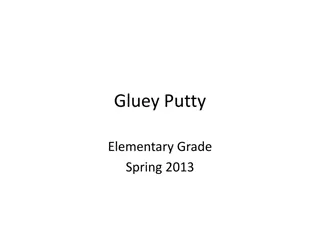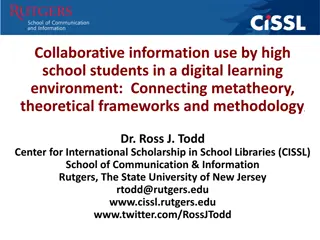eSyn 2030 Online Experiment: Exploring Collaborative Learning
Explore the experimental online event eSyn 2030, inspired by Beer's Team Syntegrity methodology, to facilitate effective collaboration and collective problem-solving. Join the organizing team in experiencing the protocol to address pressing societal challenges. The event involves a unique structure with dual team membership and critical roles, aiming to capture key learnings for societal shifts. Dive into the reverberating effect of shared knowledge and participate in the Syntegration type of Online Experiment.
Download Presentation

Please find below an Image/Link to download the presentation.
The content on the website is provided AS IS for your information and personal use only. It may not be sold, licensed, or shared on other websites without obtaining consent from the author.If you encounter any issues during the download, it is possible that the publisher has removed the file from their server.
You are allowed to download the files provided on this website for personal or commercial use, subject to the condition that they are used lawfully. All files are the property of their respective owners.
The content on the website is provided AS IS for your information and personal use only. It may not be sold, licensed, or shared on other websites without obtaining consent from the author.
E N D
Presentation Transcript
eSyn2030 A Metaphorum Online Experiment
Welcome to eSyn 2030 Dec 21st, 2020, 4 PM (GMT) - Welcome (AL) - Info set intros Name, location, #keywords - Overview of the experiment (AE/JW) - Process (JW) - Schedule (PT) - Technology (SV) - Research (DB) - Q& A - Later in the bar
eSyn 2030 Organising & Researching Team Design & Logistics Allenna Leonard Jon Walker Stephan Verveen Peter Tuddenham David Beatty Angela Espinosa Facilitators Allenna Leonard Angela Espinosa Maya Vachkova Pedro Pablo Cardoso Andrea Martinez Lukas Ritcher
E -Syn 2030 Design and development of an experimental online event inspired in Beer s Team Syntegrity (Beyond Dispute) Learning experiment to find out how the methodology may work in our designed online context to enable effective collaboration Experiencing E Syn 2030 protocol for creating a collective answer to the Opening Question: How can Metaphorum and its members capture the learning from the current crisis, and best contribute in radical shifts that society have to make fast?
Icosahedron Tensegrity (tension & compression) - B Fuller S Beer - Team Syntegrity (synergy & integrity) (Beyond Dispute) TS International ( MoM) 30 people (struts) 12 topics (nodes) Each participant is: Member of 2 teams (e.g. green yellow, pink-purple) Critic of 2 teams (e.g. black-purple; white-silver)
Reverberation Effect The way the shared knowledge of the infoset permeates the whole team to produce reverberation of the key ideas This is our main challenge for an online experience!
eSyn 2030 A Syntegration type of Online Experiment Introduction Infoset Meetings Problem Jostle Iterations (3) Discussion of 18 topics Choosing the 12 topics Closing Allocating people to struts (lottery) Jan 11th, 12th, 13th Jan 6th, 7th, 8th
E Syn 2030 challenges I. Problem Jostle
E Syn 2030 challenges: II. Agreeing on the 12 topics Managing explosive variety online - Producing a collective mental model of the desirable topics - (developing skills on the suggested tools) - Dramatically reducing variety by pre-clustering and clustering to 18 a then 12 tematic teams
E Syn 2030 challenges: III. Facilitating an effective infosets work Zooms (meetings) Miro (Problem jostle) S
E Syn 2030 challenges: III. Sharing information online Google Forms, Google Slides Audio recordings Sched (participants profiles, agenda) Participants Log Book Metahorum Web page
E Syn 2030 challenges: IV. Preventing Oscillations & Maintaining Cohesion Technology? (SV) Facilitation (Facilitators) Counselling? (DB) Recording, sharing (PT)
E Syn 2030 challenges. V. Developing an online learning community Action Research: - How did I/we do? What did I /we learn? - - How can we develop further the E Syn 2030 experiment? Improving communications & supporting technology - Research focus 2021 -
Problem Jostle PHASE 1 Generating Statements or Importance A Syntegrations begin with no pre-defined agenda, but focused on the Opening Question. Participants create the agenda. How to replicate the face-to-face experience ? Participants prepare and post their Statements of Importance (SIs) on Miro over 18 hours. You can put your SI next to similar SIs, and begin grouping. We begin Day 2 by clustering, drawing boundaries, giving the cluster a title and becoming a Host. Concludes with dozens of clusters. You are encouraged to be creative, challenging and thought-provoking
PHASE 2 Selection of the 12 Topics From the Miro board we then select the 18 most popular clusters by voting. To ensure preliminary discussions we run 18 Zoom meetings of 20 minutes each in 3 streams. This concludes with 18 Consolidated SIs and a clearer Topic title. We then hold a second vote for the most popular 12 Topics. The 12 Topics are given a colour, and thus a location as a node on the icosahedron.
Allocation of people to Topics. PHASE 3 All participants now know about the Topics and the colours which have been allocated. All participants are given a number between 1 and 30. We then pull numbers out of a hat ( with a random number generator) and the person with that number gets to choose the strut which gives them membership of the groups discussing the Topics in which they are most interested. We generate another number and that participant gets to choose. And so on until every strut has been allocated. The Lottery.
Jan 11th - 13th Infoset Meetings PHASE 4 Zoom Room 1 Zoom Room 2
Infoset (online) Meetings 5 Members, 5 Critics & 1 (or more) Observer Facilitator: Allocate speaking time, keep track of time; scribe for the team, ensure quality of team output; reporting it to the whole group Team Member: 5 people - to explore and discuss the topic, - to generate a written statement Team critic: 5 people to bring in other perspectives. Observer: not included in the discussion. 3 Iterations Concludes with Final Statement of Importance
Closing Meeting Each Topic Group presents their conclusions. Each Participant talks about their experience. Final open discussion. Later in the bar . . . . .
PROJECT OVERVIEW Jan 6th- 8th2021 Jan 6th, process. Asynchronous Initial grouping Thurs, Jan 7th 3 hrs 5-6 pm Opening Plenary. Describe SIs and All info-set members place SIs on Miro + 4 pm 4.30 pm Clustering. Boundaries, Hosts, Titles 5 pm 5.30 pm Vote 1 . Select 18 SIs Organisers timetable 18 Zoom meetings 6 7 pm First 9 Zoom meetings. 3 streams. 20 mins each. Friday, Jan 8th each. 4 hrs on Miro 4 pm 4.15 pm Plenary. Last 9 Zoom meetings. 3 streams. 20 mins 5.15 pm Hosts upload CSIs and Titles 5.30 pm 5.45 pm Vote 2 . Select final 12 SIs Organisers allocate colours to Topics. 6.15pm Lottery
PROJECT OVERVIEW Jan 11th-13th, 2021 Monday, 1.45 pm Plenary. 2 pm Meetings 1 and 2 ( 50 mins + 10 min changeover) Jan 11th 3 pm Meetings 3 and 4 6 hrs 4 pm Meetings 5 and 6 5 pm Meetings 7 and 8 6 pm Meetings 9 and 10 7 - 8 pm Meetings 11 and 12 2pm - 8 pm Iteration 2 as Monday Jan 12th 2pm - 6pm Iteration 3. (40 mins + 5 min c/over) Jan 13th 6.30 pm Preparation for presentations 7 pm 12 x 5 minute presentations 8 pm 30 1 minute reflections 8.30 Closing
